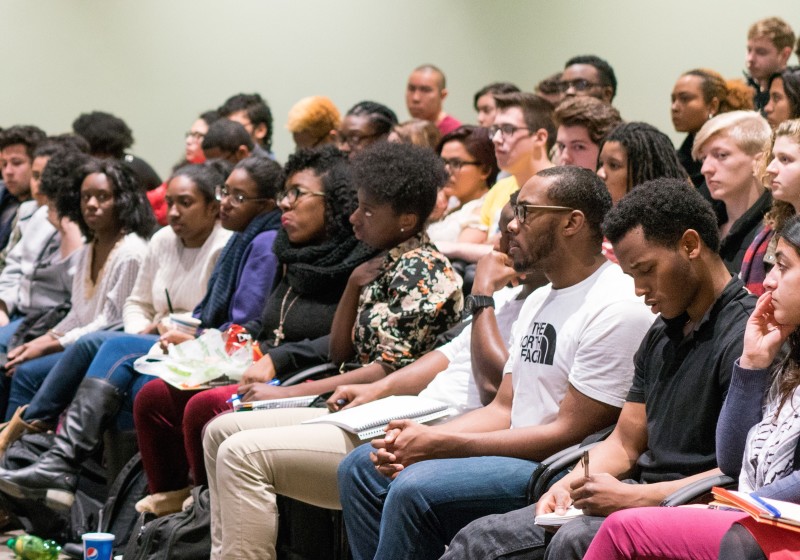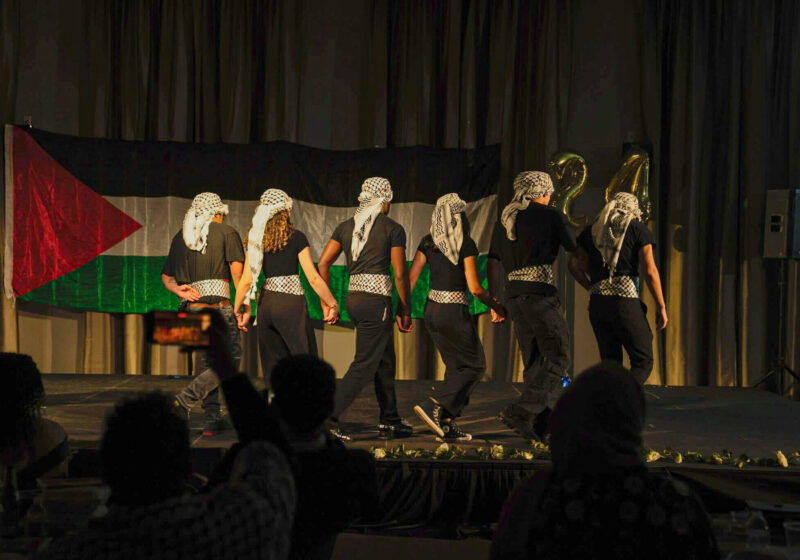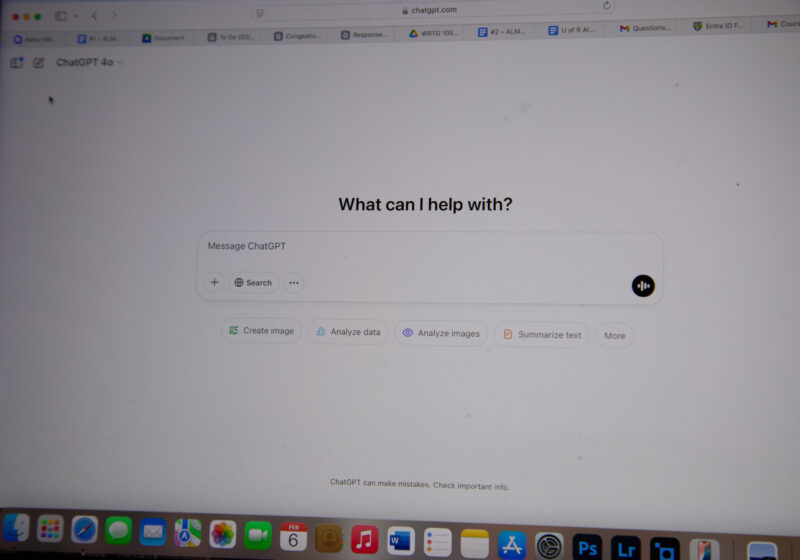Correction (1/29/2016): In a previous version of this story, the Campus Times said that the Jan. 22 forum was the first such meeting on campus since December’s Yik Yak forum. The Jan. 22 forum was actually the first such meeting at The College, the University’s undergraduate institution.
Students stood, raised their voices, and made clear their frustrations with UR’s racial climate and its handling of racial issues at last Friday’s Open Forum on Race and Diversity, the first such meeting at The College since December’s Yik Yak forum.
Douglass Leadership House (DLH) treasurer Alanna Hardy, the second student to speak, addressed her comments to the University administrators sitting in the front row.
“I feel like we’re skirting around the issue of race,” she said, when “the purpose of this entire movement is not about all diversity” but “us being attacked, us getting death threats […] us being unsafe.”
Later in the town hall, another student who didn’t “want to take up too much space as a white person” said that “this meeting is about the danger to the Black and Latino students on this campus, and we need to keep the focus there.”
A DLH house member also criticized the lack of focus. “By not actually acknowledging this is about race,” he said, “you’re letting all these problems fester and that’s what’s making this worse.”
UR President Joel Seligman explained that the University continues to use the term “diversity” because the Supreme Court disallows admissions decisions based on race. “Of course it’s really about race,” he said, but according to Supreme Court decisions, saying ‘diversity’ ensures UR’s full compliance with the law and protects it from potential lawsuits.
To applause, one student asked about the lack of a Latino representative on the commission, which he said appeared “pretty biracial.” Seligman said that the Commission would “correct this as rapidly as we can.”
DLH President Charlisa Goodlet was tired of the Commission’s promises and said that she had asked “over and over again” about the appointment of a Latino or Latina representative. “We can’t move forward when we have a commission that’s not focusing on our problems and our issues,” she said, describing student voices on the Commission as “diluted.”
“I feel like this Commission on Race has now become the word ‘diversity.’ We’re trying to avoid things that we have to tackle,” DLH Housing Coordinator Delia Nochebuena said. “Here we are again, being pointed towards more people who are going to give us more answers that we’ve already heard.”
“One day,” she continued, “it’s going to be too late.”
Several students distinguished DLH as a weightier organization than other academic living centers, and were dissatisfied with the lack of progress on a proposal to grant DLH a permanent spot on the Fraternity Quad.
“As a white student,” someone said, “I walk out of [DLH] every time with a changed perspective.” He called DLH’s lack of a guaranteed spot “absurd.”
Another DLH resident highlighted DLH as “a connection, as a liaison to the community,” with many of its members working “to reach out to the people who live in this community, probably more so than any other house on campus.”
“As long as the state of race in America remains the same,” she said, “there will be a need for Douglass Leadership House.”
Hardy felt that administrators do not realize DLH’s importance. “We don’t make plays; we make revolutions,” she said.
She called DLH a “cultural hub” and an “oasis,” one that often felt like home “more than our own zip codes,” with “the potential to cure minds, to salvage hearts.” Even when she wasn’t a member of DLH, she sought shelter there from the “barren, racist wasteland that is the U of R.”
Seligman stood and walked over to address Hardy. He thanked her for having the “courage and dignity” to speak up before asking to shake her hand. It wasn’t easy to hear the kinds of things she was saying, he said, but he emphasized the importance of attendees speaking their “hearts and minds.”
“The only way we improve is by listening,” he said. Having grown up in the time of Dr. King, the “biggest lesson” Seligman learned was, “You persevere. You never surrender.”



